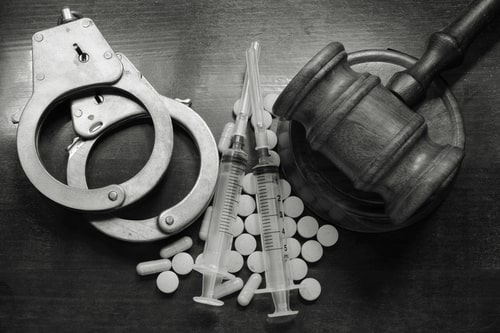Our Process

Being accused of a drug-related crime comes with its own set of challenges – the social stigma, the intricate web of evidence, and often, the weight of public opinion. Boatwright Legal recognizes these unique challenges and our process is designed to counter them.
Initially, we ensure a non-judgmental space for our clients. We listen, empathizing with their situation and understanding the backdrop of their involvement, be it addiction, coercion, or simply being at the wrong place at the wrong time.
As we move forward, our emphasis remains on keeping clients informed about the specificities of drug crime defenses. We demystify legal jargon, explaining processes like drug diversion programs, potential plea bargains, and the intricacies of mandatory sentencing.
Our commitment to collaboration takes center stage here. We believe our clients, especially those implicated in drug crimes, hold insights that can dramatically shift the defense narrative. Their stories, experiences, and understanding of events are integral to crafting a defense that’s both legally sound and deeply personal.
Drug Crime Lawyer FAQs
1. What should I do immediately after being arrested for a drug crime?
The most important thing you can do after a drug crime arrest is to remain silent and ask for an attorney. Anything you say can be used against you, so it’s crucial to avoid discussing your case with authorities until you have legal representation. Contact Boatwright Legal as soon as possible to ensure your rights are protected from the outset.
2. Can I beat a drug charge if the police found drugs in my possession?
Yes, it is possible to beat a drug charge even if drugs were found in your possession. Your defense may focus on challenging the legality of the search and seizure, the validity of the evidence, or whether your rights were violated during the arrest. Our experienced attorneys at Boatwright Legal will thoroughly review the circumstances of your case to identify the best defense strategy.
3. What are the potential penalties for drug crimes in South Carolina?
Penalties for drug crimes in South Carolina vary depending on the type and quantity of drugs involved, your prior criminal history, and whether the charge is for possession, distribution, or trafficking. Penalties can range from fines and probation to lengthy prison sentences. We’ll work tirelessly to mitigate these penalties and protect your future.
4. Is it better to accept a plea deal or go to trial for a drug crime?
Whether to accept a plea deal or go to trial depends on the specifics of your case. While Boatwright Legal is prepared to take every case to trial, we also understand that a plea deal might be in your best interest in some situations. We will provide you with a thorough evaluation of your options and help you make the best decision for your circumstances.
5. How does Boatwright Legal approach drug crime defenses?
At Boatwright Legal, we take a comprehensive and personalized approach to drug crime defenses. We meticulously examine the evidence, question the legality of your arrest, and explore every angle of your case. Our goal is to build a robust defense tailored to the unique aspects of your situation, ensuring the best possible outcome.
6. What role do informants play in drug crime cases?
Informants often play a significant role in drug crime cases, providing testimony that can be used against you. However, informants may have their own motives, such as reducing their own charges or settling personal vendettas. Our legal team will scrutinize the credibility of any informant involved in your case and challenge their testimony when necessary to protect your rights.









